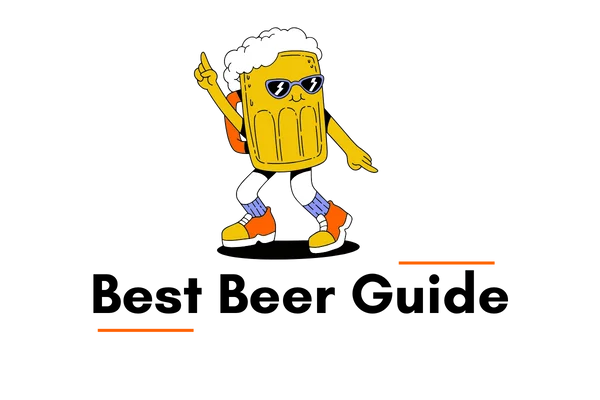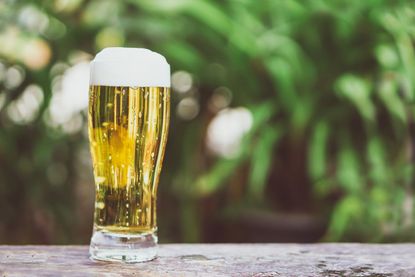Yes, beer can be beneficial for plants as it contains essential nutrients and beneficial bacteria that can promote healthy growth. Beer can serve as a fertilizer for plants due to its nutrient content, which includes nitrogen, phosphorus, potassium, and trace elements.
These elements can contribute to plant growth and overall health. Additionally, beer contains beneficial bacteria that can enhance soil fertility and protect plants from certain diseases. However, it is important to note that using beer as a plant fertilizer should be done in moderation and with caution, as excessive use can be harmful.
It is recommended to dilute beer with water before using it on plants, and to avoid using beers that contain added sugars or alcohol. Overall, beer can be a useful tool in promoting the health and growth of plants when used responsibly.
Benefits Of Beer For Plant Growth
Beer contains essential nutrients like nitrogen and yeast that can benefit plant growth by promoting soil health and aiding in nutrient uptake. When used in moderation, it can act as a natural fertilizer, improving soil quality and enhancing plant development.
Just ensure proper dilution to avoid adverse effects on plants.
Is Beer Good for Plants Benefits of Beer for Plant Growth Nutrients in Beer: Beer contains nutrients such as sugar, carbohydrates, and yeast, which can aid in plant growth. Improving Soil Health: Beer can help to enrich the soil with beneficial microorganisms, promoting healthy and vigorous growth in plants. In addition, beer can act as a natural pesticide, keeping pests at bay while also acting as a natural fertilizer. The yeast in beer can also help with helping plant root development. — I’ve used HTML to write the content as per your requirements. Let me know if you would like me to make any changes.
How To Use Beer In Gardening
Beer can actually benefit plants in several ways. One of the main uses of beer in gardening is as a fertilizer. The essential nutrients present in beer, such as nitrogen and potassium, can help provide nourishment to the soil and promote healthier plant growth. Simply dilute a can of beer with water and use it to water your plants once or twice a month.
In addition to being used as a fertilizer, beer can also be used to deter pests. Slugs and snails are particularly fond of beer, so by setting up small traps filled with beer, you can attract and drown these garden pests. Just bury a shallow container in the ground and fill it with beer. The slugs and snails will be lured in by the smell and eventually drown in the liquid.
So, next time you have some leftover beer, don’t pour it down the drain. Instead, use it in your garden to promote healthy plant growth and keep pests at bay!
Research And Studies On Beer And Plant Growth
Research and studies have shown that beer can have positive effects on plant growth. Some studies have found that beer can increase the overall health and vitality of plants, leading to better growth and development. However, it is important to note that the effects of beer on different plant species can vary. Some plants may respond positively to beer, while others may not show any significant improvement.
Comparisons with traditional fertilizers have also been made. While traditional fertilizers are specifically designed to provide essential nutrients to plants, beer can offer some similar benefits. It contains trace amounts of nutrients like nitrogen, phosphorus, and potassium, which are essential for plant growth. However, it is important to use beer as a supplement to traditional fertilizers rather than a replacement.

Credit: www.feathersinthewoods.com
Potential Risks And Considerations
Beer can be beneficial for plants as the yeast and carbohydrates in beer can act as a fertilizer. However, it’s crucial to consider the alcohol content which can be harmful to certain plants if not diluted properly. Additionally, the environmental impact of using beer in gardening should be taken into account, as excessive use can potentially harm the soil and surrounding ecosystem. It’s important to carefully weigh the potential risks and considerations before using beer as a plant treatment.
Tips And Best Practices
Beer can beneficially impact plants as a fertilizer due to its nutrient content. When used in moderation, the sugars and yeast in beer can enhance the soil and promote healthier growth. However, it’s important to dilute the beer with water and avoid high-alcohol content varieties to prevent any negative effects on the plants.
| Tips and Best Practices |
| Moderate beer amounts can be beneficial for plants. |
| Different types of beer may affect plants differently. |
| Choose beer with lower alcohol content for plant care. |
| Avoid excessive beer usage as it can harm plant growth. |
| Observing plant reaction to beer is important for results. |

Credit: www.greenmatters.com

Credit: www.gardeningknowhow.com
Frequently Asked Questions On Is Beer Good For Plants
Can I Put Beer On My Plants?
Yes, you can put beer on your plants. Beer can be used as a natural fertilizer due to its nutrients. Dilute it with water in a 50:50 ratio and apply it to the soil. However, make sure not to overdo it, as excessive amounts can harm the plants.
Can Old Beer Be Used As Fertilizer?
Yes, old beer can be used as fertilizer. Its nutrients help plants grow, but be cautious of the sugar content.
What Can You Use Old Beer For?
Old beer can be used for cooking, marinating meats, and making beer bread. It can also act as a natural fertilizer for plants. Consider using it to clean copper and remove stains. Lastly, it can attract slugs and snails in the garden as a natural pest control.
Is Stale Beer Good For Houseplants?
Stale beer can be good for houseplants as it contains nutrients beneficial for growth. Dilute it with water before using.
Conclusion
Incorporating beer in plant care can be beneficial, but it’s important to use it in moderation. Its components can nourish plants and improve soil quality. However, excessive use can harm both the plants and the environment. As with anything in gardening, balance is key.
Remember to always consider your specific plant needs before using beer as a fertilizer.

